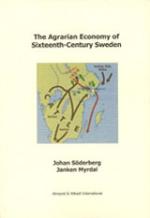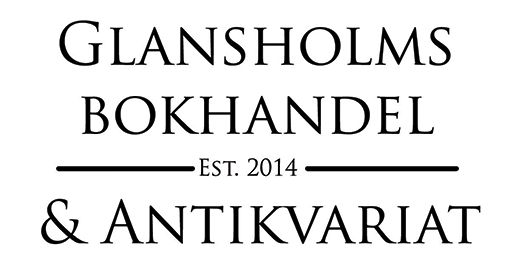
Våra experter hjälper dig eftersöka "The Agrarian Economy of Sixteenth-Century Sweden" - utan extra kostnad
Glansholms Antikvariat har många tusentals böcker på lager - och över 10 miljoner böcker hos våra underleverantörer. Vi har en unik service till dig - efterlys boken och våra experter eftersöker den åt dig och återkommer inom några dagar.
Vad kommer boken att kosta? Normalpriserna för efterlysta böcker ligger mellan 120 kr och 380 kr beroende på utgåva, skick, tillgång, etc. Vi kan inte lämna ett pris förrän vi bedömt det enskilda exet. Har vi boken inne kan det ibland bli billigare och rariteter har ofta ett högre värde, att en bok är kostsam hindrar oss inte från att eftersöka och reservera den för våra kunder.
Är en efterlysning bindande? Nej, naturligtvis får du se bild, pris och skickbedömning innan du bestämmer dig. Men en efterlysning innebär ofta att vi låter ta in boken på lager och vi är därför naturligtvis tacksamma om du är seriöst intresserad och återkommer när vi kontaktar dig via epost.
Vänligen gör en efterlysning per bok! Varje bok behöver ett eget referensnummer för att vi ska kunna hantera efterlysningen.
Vi behandlar inte efterlysningar av ordinarie kurslitteratur.
 Efterlys "The Agrarian Economy of Sixteenth-Century Sweden"
Efterlys "The Agrarian Economy of Sixteenth-Century Sweden"The Agrarian Economy of Sixteenth-Century Sweden
Av Janken Myrdal, Johan Söderberg

|
Bok- presentation: |
The Agrarian Economy of Sixteenth-Century Sweden |
|
Författar- presentation: |
Janken Myrdal |

|
|
Utgåvor
This volume provides a broad picture of the economic development of Sweden during the sixteenth century. The source material available for exploring agrarian change during this era is in some respects perhaps the best in Europe, comprising more than two million pages of tax records in the archives.
Results are discussed and interpreted against a broad background of international research, where the Swedish case can illustrate general European tendencies. The regional division of labour, the wealth of the peasants and the tendencies towards market expansion are examined. New ways of exploiting the resources of the landscape, involving the effectivization of the use of marginal lands, are studied.
Sweden' s agriculture was in a certain sense a continuation of the medieval economy, but this century also brought decisive change. A strong central state was formed. What happened to agricultural production and the conditions of the peasantry as Sweden approached the Great Power Era?
Johan Söderberg is Professor of Economic History at Stockholm University. Janken Myrdal is Professor of Agrarian History at the Swedish University of Agricultural Sciences.
Bok: 172490
 Anmäl textfel
Anmäl textfel





